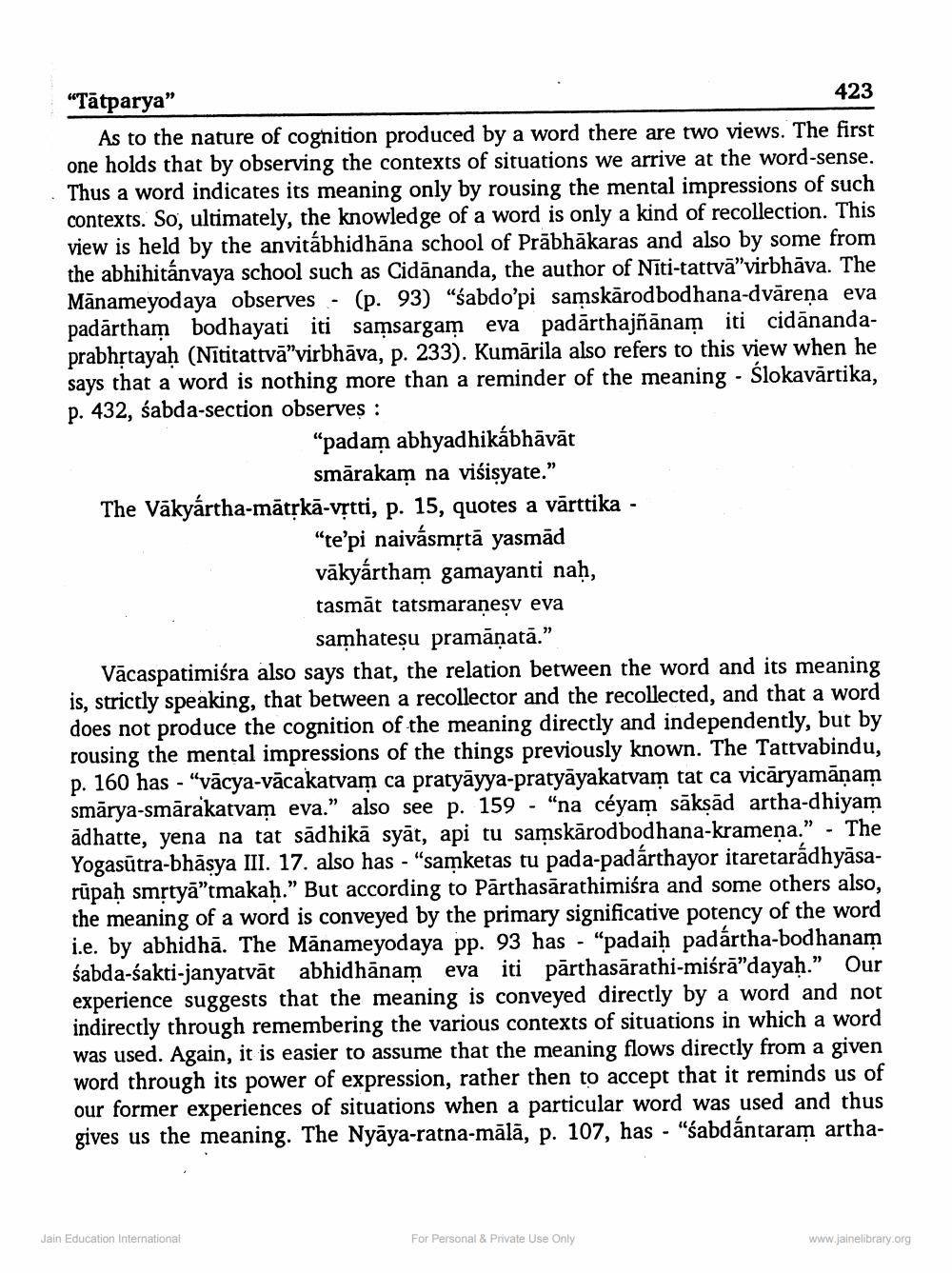________________
“Tātparya"
423 As to the nature of cognition produced by a word there are two views. The first one holds that by observing the contexts of situations we arrive at the word-sense. Thus a word indicates its meaning only by rousing the mental impressions of such contexts. So, ultimately, the knowledge of a word is only a kind of recollection. This view is held by the anvitábhidhāna school of Prābhākaras and also by some from the abhihitánvaya school such as Cidānanda, the author of Niti-tattvā"virbhāva. The Mānameyodaya observes - (p. 93) "sabdo'pi samskārodbodhana-dvārena eva padārtham bodhayati iti samsargam eva padārthajñānam iti cidānandaprabhrtayah (Nititattvā” virbhāva, p. 233). Kumārila also refers to this view when he says that a word is nothing more than a reminder of the meaning - Ślokavārtika, p. 432, sabda-section observes :
“padam abhyadhikábhāvāt
smārakam na viśisyate.” The Vākyártha-mātņkā-vítti, p. 15, quotes a vārttika -
"te’pi naivásmộtā yasmād vākyártham gamayanti nah, tasmāt tatsmaraneșv eva
samhatesu pramāṇatā.” Vācaspatimiśra also says that, the relation between the word and its meaning is, strictly speaking, that between a recollector and the recollected, and that a word does not produce the cognition of the meaning directly and independently, but by rousing the mental impressions of the things previously known. The Tattvabindu, p. 160 has - "vācya-vācakatvam ca pratyāyya-pratyāyakatvam tat ca vicāryamānam smārya-smārakatvam eva." also see p. 159 - "na céyam sāksād artha-dhiyam adhatte, yena na tat sādhikā syāt, api tu samskārodbodhana-kramena." - The Yogasūtra-bhāsya III. 17. also has - "samketas tu pada-padárthayor itaretaradhyāsarūpaḥ smrtyā"tmakaḥ.” But according to Pārthasārathimiśra and some others also, the meaning of a word is conveyed by the primary significative potency of the word i.e. by abhidhā. The Mānameyodaya pp. 93 has - "padaih padártha-bodhanam śabda-śakti-janyatvāt abhidhānam eva iti pārthasarathi-miśrā”dayah.” Our experience suggests that the meaning is conveyed directly by a word and not indirectly through remembering the various contexts of situations in which a word was used. Again, it is easier to assume that the meaning flows directly from a given word through its power of expression, rather then to accept that it reminds us of our former experiences of situations when a particular word was used and thus gives us the meaning. The Nyāya-ratna-mālā, p. 107, has - "sabdántaram artha
Jain Education International
For Personal & Private Use Only
www.jainelibrary.org




